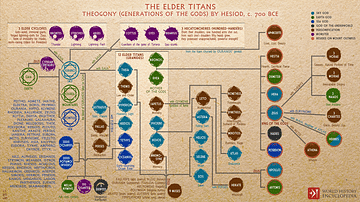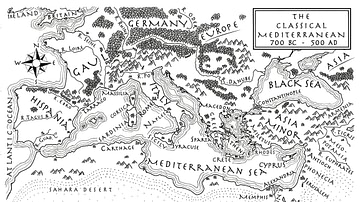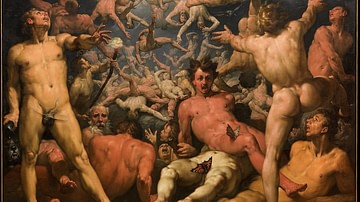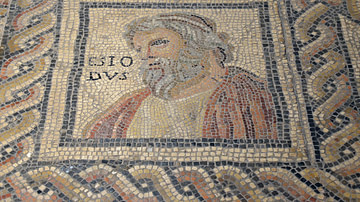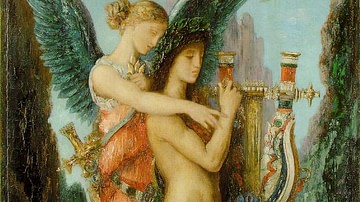Illustration
An infographic illustrating Hesiod's Theogony (literally meaning "Birth of the Gods") - the earliest known and the only complete account of the origins of the universe and the gods according to ancient Greek mythology and tradition. Traditionally, Theogony and other works by Hesiod are dated slightly after Homer's (although such relative placement is speculative), around the 8th century BCE. Consisting of about 900 hexametric verses, the poem starts at the very emergence of the cosmos and leads from more abstract entities and forces to anthropomorphic powers and then to a succession of gods locked in power struggles for domination, culminating with the victory of Zeus over the older generations of deities and the imposition of the "current" order of the universe.
About the Author
Cite This Work
APA Style
Netchev, S. (2023, March 29). Theogony (Generations of the Gods) by Hesiod, c. 700 BCE. World History Encyclopedia. Retrieved from https://www.worldhistory.org/image/17243/theogony-generations-of-the-gods-by-hesiod-c-700-b/
Chicago Style
Netchev, Simeon. "Theogony (Generations of the Gods) by Hesiod, c. 700 BCE." World History Encyclopedia. Last modified March 29, 2023. https://www.worldhistory.org/image/17243/theogony-generations-of-the-gods-by-hesiod-c-700-b/.
MLA Style
Netchev, Simeon. "Theogony (Generations of the Gods) by Hesiod, c. 700 BCE." World History Encyclopedia. World History Encyclopedia, 29 Mar 2023. Web. 15 Apr 2025.



